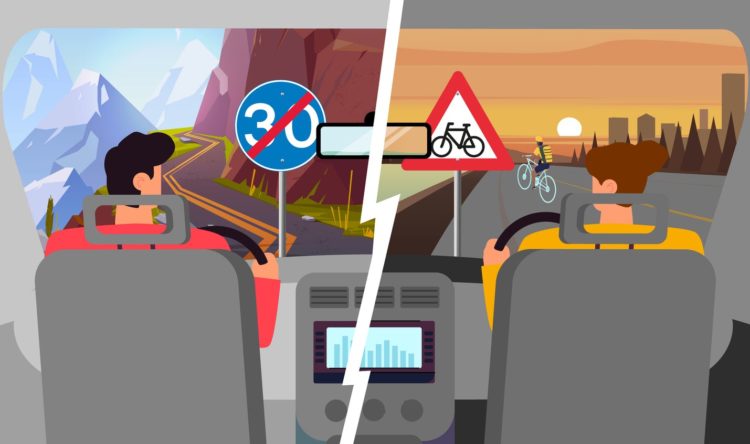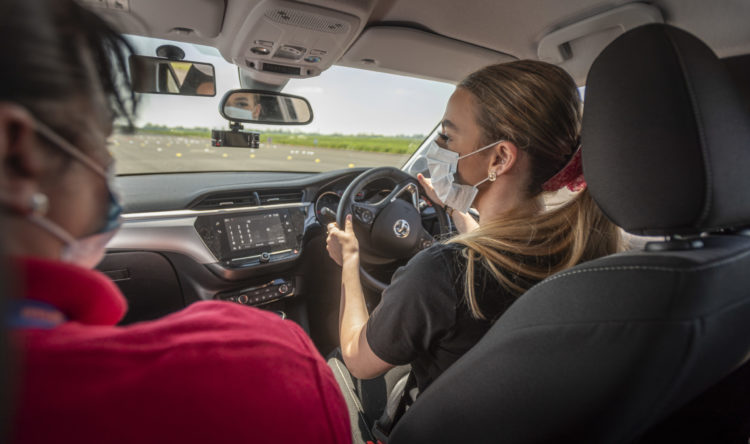Degrees of influence
Renewed calls for Graduated Licencing
A new phased driving licensing system for young and newly qualified drivers gains support.
New research finds that the majority of people support Graduated Driver Licensing.
Conducted on behalf of the road safety charity Brake and insurance company Axa UK, the survey found 63% of respondents were in favour of the change, with just 16% against.
Put the brakes on
Brake say drivers under the age of 25 are four times more likely to be involved in a fatal crash if they are driving with others. It claims peer pressure leads to young motorists showing off.
The statistics and survey results back up numerous investigations over the last 20 years. Despite this, and potential policy changes mooted by government over the last two decade, nothing has so far appeared in legislation.
But with statistics on road safety and casualties, especially amongst young novice drivers remaining largely static, many road safety professionals and organisations have called for more action.
In recent months, the current government has agains flagged the possibility of change. However, whilst headlines were made of the Transport Minister Richard Holdens comments, little has followed his statements.
The government has previously dismissed moves for Graduated Licencing. Restrictions including curfews and limits on passengers in the car, were ditched in January 2022. It reasoned that young drivers needed to use cars for employment, as well as travelling to further and higher education providers.
Road safety reality
A quarter of new drivers crash in their first two years on the road. Government’s own official statistics evidence this.
In a statement to The Times, the Department for Transport (DfT) said: “Every death or serious injury on our roads is a tragedy and we continue to work tirelessly to improve road safety for all users.
“Our approach to improving safety for new and novice drivers is through new technology and improving education, while reinforcing vital road safety messages through our Think! campaign.”
The government has previously dismissed moves for Graduated Licensing. Restrictions including curfews and limits on passengers in the car, were ditched in January 2022. It reasoned that young drivers needed to use cars for employment, as well as travelling to further and higher education providers.
Restricting casualties
New restrictions would see amendments made to the Road Traffic (New Drivers) Act to ban passengers under the age of 25 in the driver’s first year or six months.
The Act already bans drivers if they get six points in their first two years of driving.
It has been backed by Support for Victims of Road Crashes – an advisory to the Department of Transport (DfT) – and National Police Chief’s Council Roads Policing lead Jo Shiner.
The Government met with road safety campaigners in May to discuss proposals. However, nothing more appears to have changed in government thinking.
Education and training
A new report – Driver testing and education – by Brake and Axa UK, challenges the Government. It calls for a high-level strategic review of road safety, because safer drivers mean safer roads for all.
The top recommendation from the report is to implement a progressive licensing system. This could provide safeguards for learner and newly qualified drivers.
A progressive or graduated licensing system could bring in a minimum learning period, lower blood alcohol limit, reductions in the number of similar-aged passengers a newly licensed driver can carry etc. These have proved successful in reducing road deaths and injuries of young drivers in other countries, according to the charity. However, it is always difficult to directly compare different countries, with different demographics, geographies and existing driving regulations.
A similar system in New Zealand led to a 23% reduction in car crash injuries for 15–19-year-olds, and a 12% reduction for 20–24-year-olds.
There is good evidence that additional hazard perception training is another effective way to improve driver safety, states the report.
Young driver focus
Recently, Dr Shaun Helman, Chief Scientist, TRL, bemoaned the lack of movement on GDL. Speaking at Young Driver Focus ’23, Shaun advocated taking responsibility into our own hands.
“The evidence tells us that we can reduce collisions by having minimum learning periods, maybe including a minimum number of learning hours, and post-test controls on unsupervised driving at night, and unsupervised driving with peer-age passengers”.
“The evidence for these approaches areas is strong. They remain the key to improving the skills, actions and safety of all new, young drivers. However, without formal legislative requirements, the next best option is to encourage learners and new drivers to self-impose such measures.”
You can read the full YDF’23 report here.
Get into gear
Ross Moorlock, interim CEO at Brake, said: “This report shows that nearly two-thirds of drivers surveyed said they would support a phased or progressive licensing system, and only one-sixth (16%) would be against it.
“This overwhelming majority demonstrates that there is clear public support and appetite for a system like this, and for ensuring we prioritise the safety of young drivers on our roads.
“We ask the Government to ensure that in another six years we aren’t still asking for a system that we know could help safeguard young and new drivers on our roads.”
The report from Brake and Axa also focused on other aspects of system change. These include lifelong learning, further testing, more driver education and awareness around stopping distances, and a further call for a reinvestment in active travel schemes.
Axa Commercial CEO Jon Walker said: “This study raises a number of issues around driver education, testing and licensing that warrant further consideration.
“It’s concerning to see that 71% of respondents were unable to identify the correct distance they should keep from the car in front and 59% chose the incorrect national speed limit on dual carriageways.
“We therefore urge the Government to undertake a high-level strategic review to explore the issues raised in more detail, including the introduction of a graduated driver licensing scheme.”





